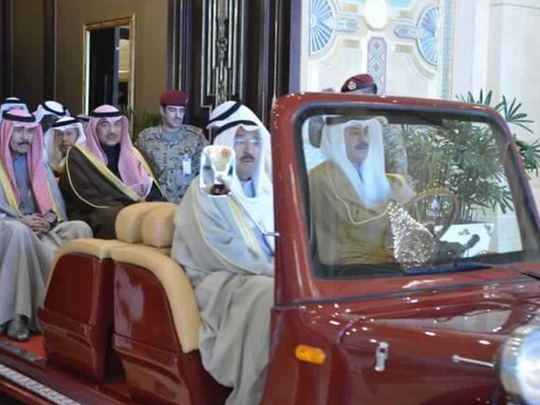
Manama: As Kuwait is raising hopes about the Gulf Cooperation Council (GCC) summit it is hosting on Tuesday and Wednesday, its fate and the level of representation will most likely depend on the outcomes of the meeting of the alliance foreign ministers on Monday.
The GCC foreign ministers usually hold their meeting one day before the summit to fine-tune the agenda and work out final details.
However, this meeting will not be held in normal circumstances as it will be the first gathering of officials from the GCC member states - Bahrain, Kuwait, Oman, Qatar, Saudi Arabia and the United Arab Emirates – since a major Gulf crisis came out in the open six months ago.
On June 5, Bahrain, Saudi Arabia and the UAE severed their political, commercial and travel links with Qatar, saying that the decision was in response to Doha’s policies of supporting extremists and funding terrorism.
The three countries, and Egypt which also cut off its relations with Qatar, issued a list of 13 demands to Doha.
However, Qatar rejected the demands, and the standoff between the two sides deepened despite efforts by Kuwait to mediate and narrow the gap between them.
“The meeting of the foreign ministers or their deputies is crucial since it should indicate positions and stances that will determine the next steps by the GCC countries,” sources said.
Doha said that its emir Shaikh Tamim Bin Hamad Al Thani would head his country’s delegation to the summit.
Oman’s ambassador to Kuwait told Kuwaiti daily Al Rai that his country’s delegation would be led by Fahad Bin Mahmood Al Saeed, the deputy prime minister for cabinet affairs.
In Kuwait, the Emir Shaikh Sabah Al Ahmad toured the venue of the GCC 38th summit and was briefed by GCC Secretary General Abdul Lateef Al Zayani and Kuwait’s Foreign Minister Shaikh Sabah Al Khalid about the latest preparations.
Kuwait has been particularly keen on holding the summit despite the deep fissure within the GCC to ensure that the alliance set up in 1981 does not collapse or disintegrate.
The GCC is the only pan-Arab alliance that is regularly active and its leaders hold two annual summits, a formal one in December in the member states and an informal one in May in Riyadh, the headquarters of the Secretariat General.










